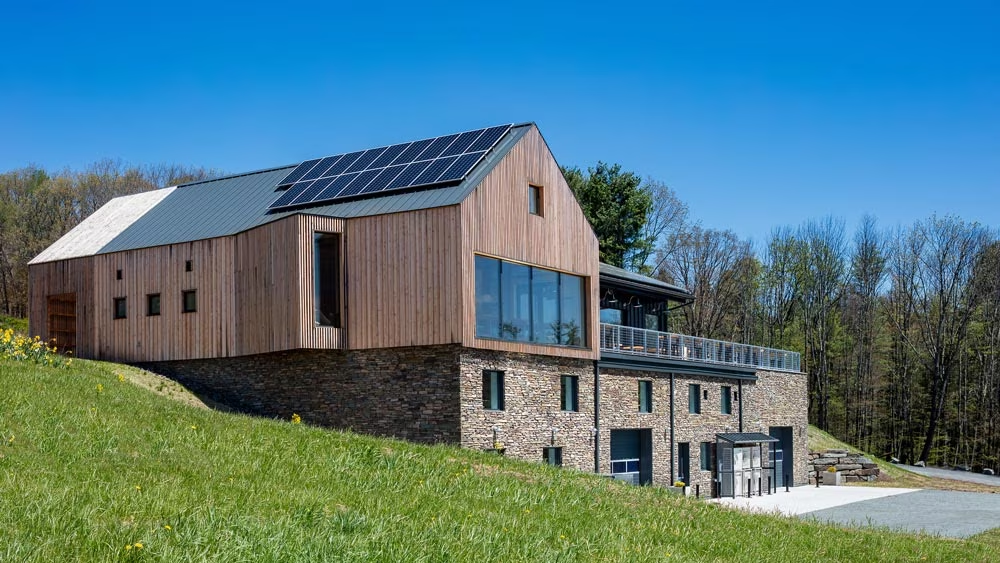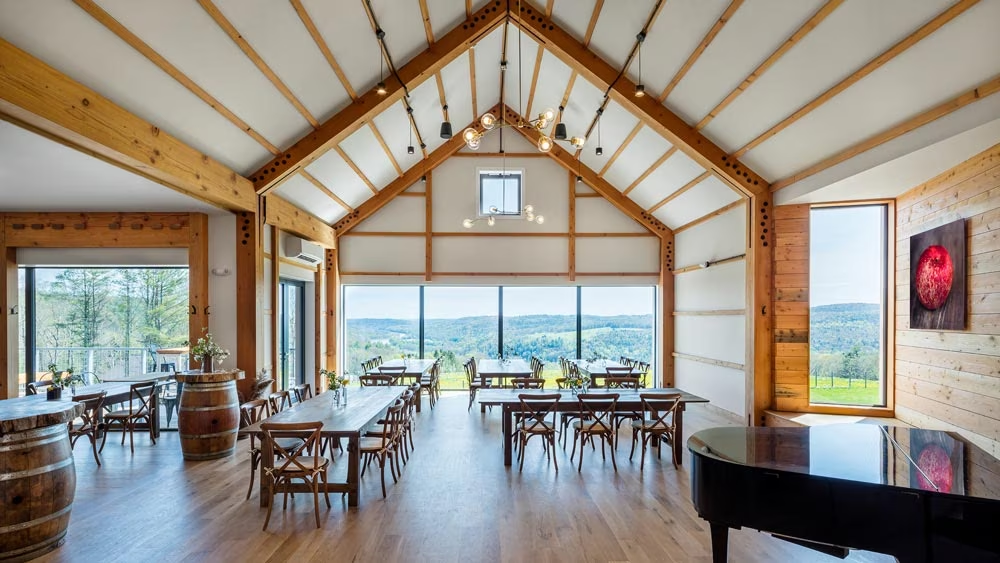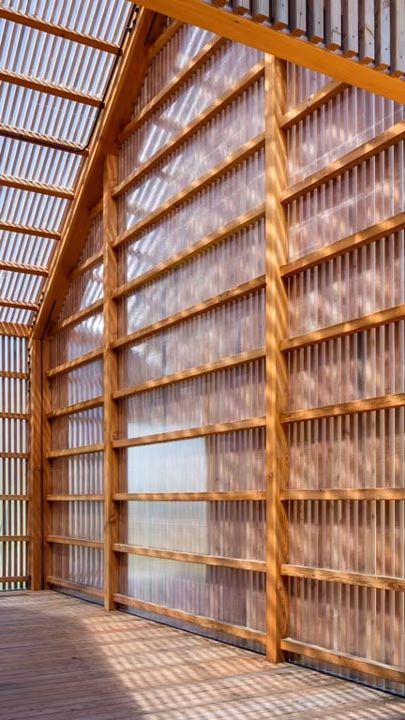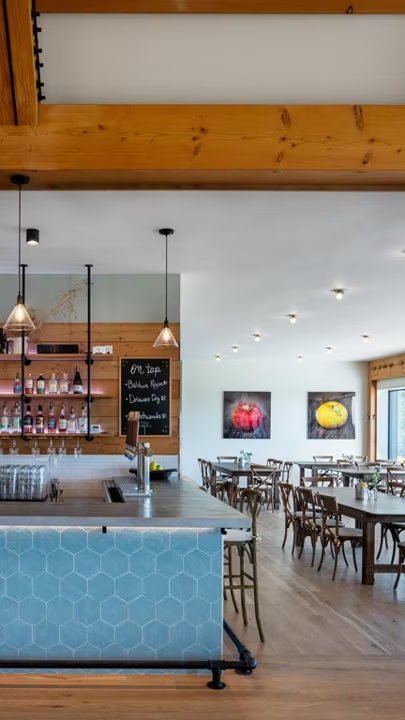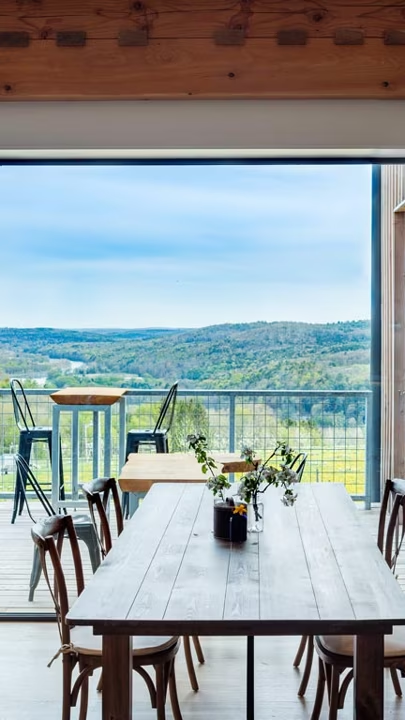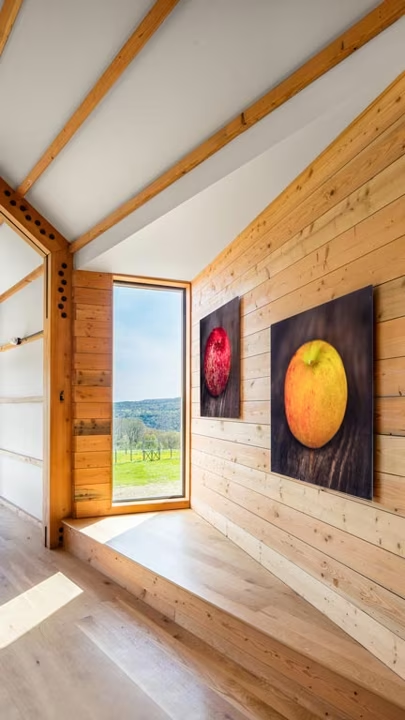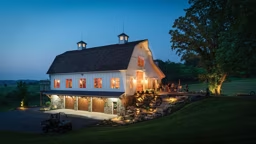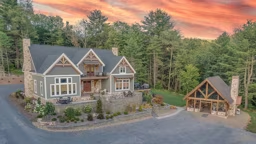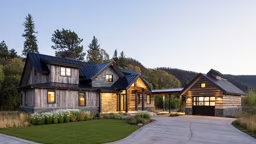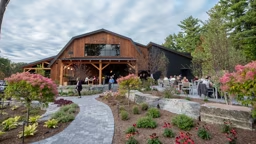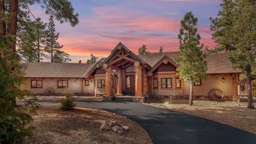In Callicoon, New York, nestled among rolling hills, antiqued churches and some of the best fly fishing in the country, sits a property where the past meets the future. Open for just under two years, Seminary Hill Cidery is housed in a traditional timber frame with a modern ethos that’s as forward-thinking as it is good-looking.
As the world’s first “Passive House” cidery, the two-story structure meets strict sustainability requirements. The architect, James Hartford of River Architects, explains:
“It’s using in the neighborhood of only 10 to 30 percent of the energy that the same building would need if built conventionally. Passive House buildings use incredibly small amounts of energy, and they’re fossil-fuel free for the most part. So, there’s no fossil fuel onsite at the cidery, except the propane-fired generator. We don’t heat the place with oil or gas, and we actually have an all-induction kitchen.”
The timber frame, provided by New Energy Works, plays a key role in the structure’s energy efficiency.
“One of the things that really ties us to River Architects is the high performance building approach,” shares Bryan Bleier from the New Energy Works team. “We were brought in early, which is ideal. We are all about that team mentality and trying to help our partners figure out what makes the most sense for each individual project.”
James explains that not only does timber frame construction result in efficient spaces, but the materials themselves contribute to the sustainability goals of a Passive House.
“Timber is really great for us, because we’re looking at the embodied energy of construction,” he says. “We try to not use high-carbon-intensity materials like steel or concrete. Obviously, it’s not entirely avoidable, but to minimize the use of those really helps minimize our environmental impact. So timber is a natural choice as opposed to going with a steel frame to make that space.”
While its design looks to the future, the cidery’s origin story dates back generations. Owner Doug Doetsch’s family had been farmers in the region for generations, nearly 150 years. Doug grew up visiting his family’s farms before moving away as a kid.
“But I always came back. I would always come back in the summer and Christmas and whenever I could,” Doug recounts. “In New York and in trips to France, Spain and England, I was starting to drink cider, and I realized we’ve got a couple old apple trees on the property ourselves. I’d start thinking about how my great grandfather planted those trees and I would wonder, ‘Why do we have those big, old, unkempt apple trees?’ And I realized that it was for cider.”
Eventually, with the help of the late renowned orchardist Michael Phillips, Doug opened Seminary Hill, which has grown from a personal orchard to a robust business that includes the cidery, a restaurant and an event space, as well as a hotel in town and a mountain lodge.
“I had originally started thinking at the upper orchard, the small orchard, that maybe I’d make some cider and it’d be a hobby — a kind of retirement project — while I’m still working at my day job,” Doug explains. “My sons would help while planting trees, and one of them looked at the new orchard and the views over the Delaware, and he said, ‘Look, you really should go big or go home.’”
Now, the cidery welcomes visitors year-round for tastings, orchard tours (including by snowshoe in the winter) and fresh, farm-to-table meals in the atmosphere of a stunning timber frame. Doug suggests booking a weekend away at the Boarding House at Seminary Hill, enjoying a tour and meal or two at the cidery and exploring what the region has to offer — fly fishing, charming small town tours and more.
The Details
Timber Frame Provider: New Energy Works
Architect: River Architects
Builder: Baxter Building
Learn more and plan your trip by visiting seminaryhill.co




